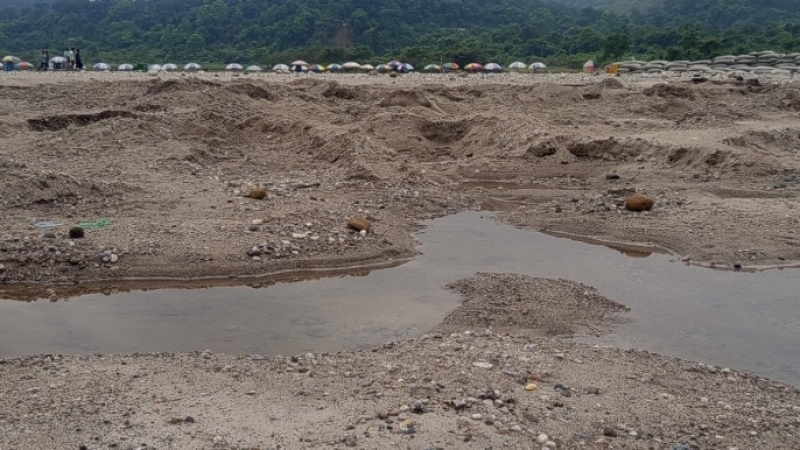- Intimidation or bloodshed cannot halt Bangladesh’s march to democracy |
- Khaleda Zia integral to an important chapter in BD history: Yunus |
- Enthusiasm marks Victory Day celebrations across Bangladesh |
- Dhaka-Delhi ties deep; to be shaped by trust, dignity, mutual respect |
- EU deploys election observation mission to Bangladesh |
HC Orders List of Sada Pathor Stone Looters, Restoration

Sada Pathor lay barren as stones looted recently. Photo taken on 11 August 2025. Photo: Collected
The High Court on Thursday directed the authorities to compile and submit a complete list of individuals and groups involved in the large-scale looting of stones from Sada Pathor, a popular natural and tourist site in Bholaganj, Companiganj upazila of Sylhet.
The bench of Justice Zeenat Haque and Justice Aynun Nahar Siddiqua issued the order in response to a writ petition filed by Human Rights and Peace for Bangladesh. The court further instructed that all stolen stones must be returned to their original locations within seven days, ensuring the restoration of the site’s natural landscape.
The directive follows mounting public concern over the rapid depletion of the iconic white stones, which are a defining feature of Sada Pathor’s beauty and a draw for both domestic and international tourists.
During the hearing, it was alleged that vast quantities of stones had been illegally extracted over the past year from Companiganj and Gowainghat upazilas, often in broad daylight and in plain sight of local officials, yet without decisive intervention. The unchecked looting has left large sections of the riverbed bare, prompting environmental worries and threatening the local tourism economy.
The High Court has also fixed 17 August for the hearing of another petition related to the same incident, to be heard by a separate bench of Justice Fahmida Quader and Justice Syed Jahed Mansur.
The writ petition underscored the urgent need for enforcement action, not only to halt further illegal extraction but also to identify and hold accountable those enabling or profiting from the stone trade. The court’s restoration order is expected to test the capacity and resolve of local and national authorities to safeguard the country’s natural heritage.
Once implemented, the ruling could serve as a precedent for stronger environmental protections in other ecologically sensitive areas of Bangladesh.

